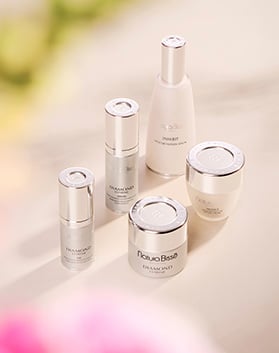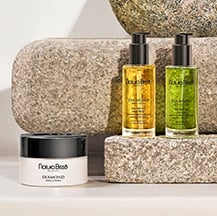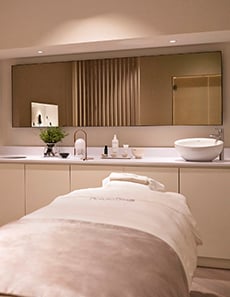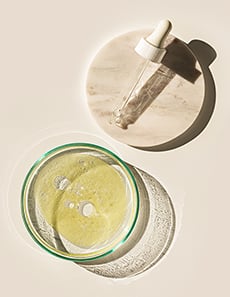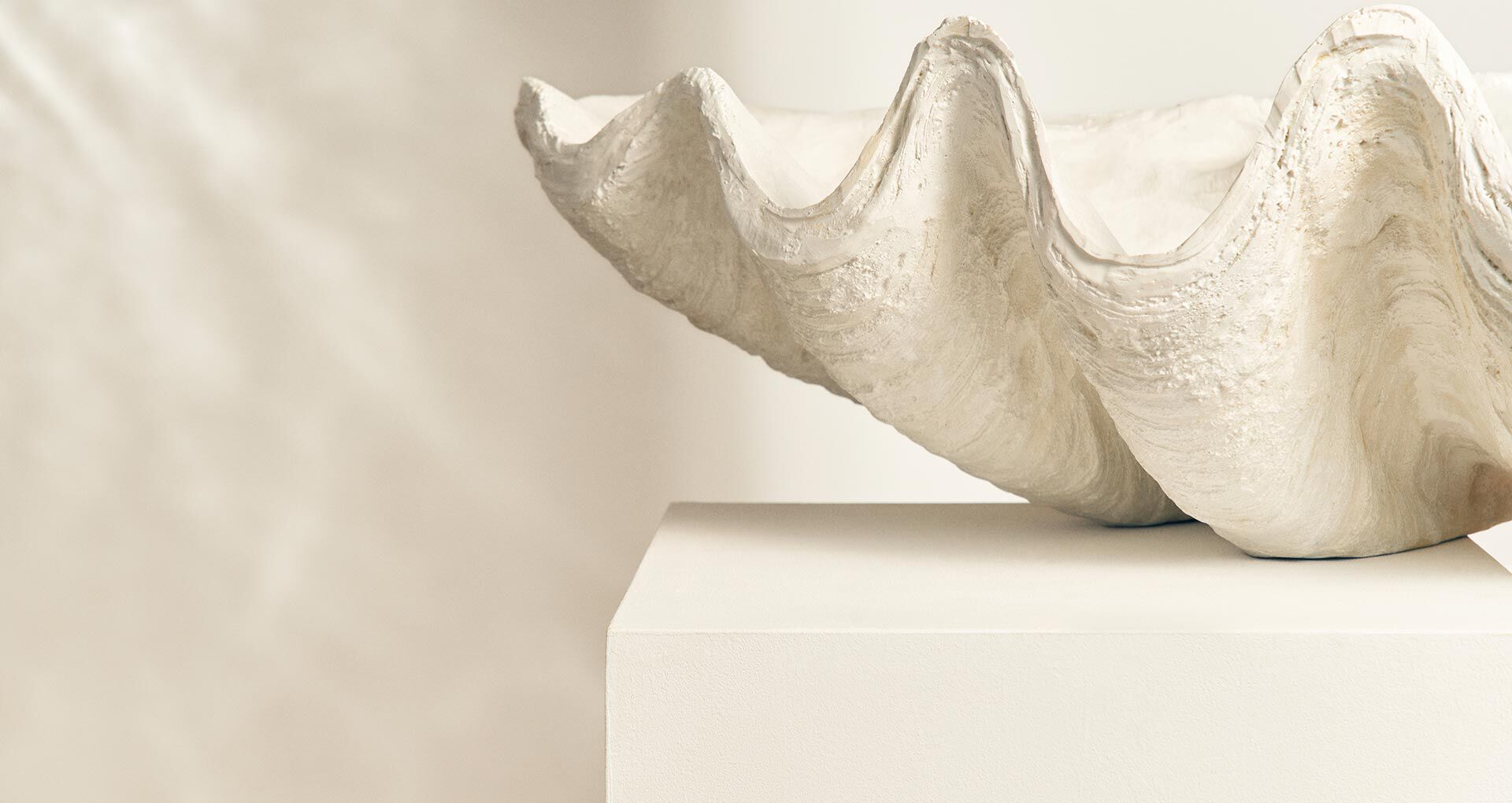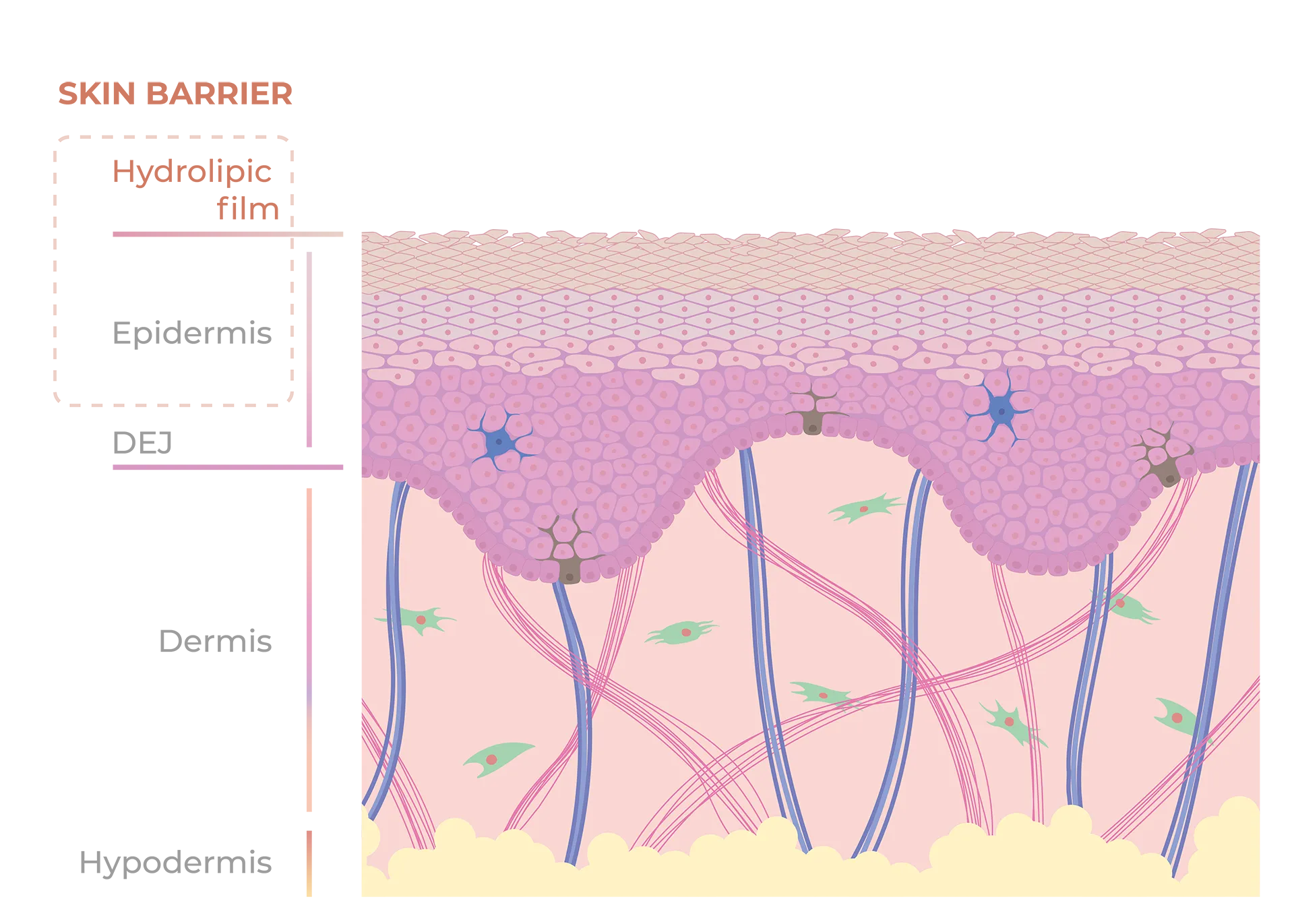The skin barrier is now a hot topic when it comes to beauty,
because this is where your skin's wellbeing begins.
To give you a better idea of what your skin's protective barrier is, what it does and how to take care of it, we've put together this mini guide.
What exactly is the skin barrier?
If you're a beauty enthusiast, you are probably familiar with these two words. But do you really know what the skin barrier is and why it's important?
The skin barrier is essentially the outermost layer of the epidermis. It's made up of cells (corneocytes), lipids, amino acids, and fatty acids. The hydrolipidic film covering the stratum corneum—the outermost part of the epidermis—is also considered part of the barrier.
So what's the barrier function then?
The terms skin barrier and barrier function are often used interchangeably. But the skin barrier refers to the physical layer whereas the barrier function is what does.
The barrier's function is to protect our skin from external factors—solar radiation, pollution, blue light and free radicals—and regulate transepidermal water loss, helping preserve comfort and vitality.
Transepidermal water loss (TEWL for short) is a naturally occurring process in the skin. It's the amount of water that evaporates through the cutaneous surface. This needs to happen to some degree to maintain the right level of hydration.
However, certain external factors (wind, cold, heat, etc.) can impair the integrity of the barrier function and lead to an increase in TEWL, causing dryness, irritation, and ultimately accelerating the appearance of signs of aging.
The skin barrier has other functions too. It helps us:
• Regulate our body temperature
• Withstand the cold and heat
• Absorb vitamin D from the sun
• Absorb other beneficial substances such as the active agents found in our beauty products.
How to know if skin barrier is damaged?
The barrier is very delicate. It can become damaged or impaired if you take certain medications, become dehydrated, or abuse cosmetic products (exfoliating too often, for instance). It can also be affected by stress, spending too much time in the sun or other external factors such as harsh weather conditions or pollution.
What happens if our skin barrier gets damaged?
Your skin barrier can't function properly if it's out of sorts.
How can you tell? Well, flakiness, dryness, tightness, acne breakouts and the sudden onset of wrinkles, lines and sagginess could all be telltale signs that your barrier is damaged.
You should also pay close attention to how your skin reacts to your usual beauty routine. If the barrier is impaired, it may become red or itchy, or blemishes may appear, even with products you use regularly.
How can you support the skin barrier?
1. First, find out why your barrier is impaired and then target the underlying problem.
2. Be sure to get a good night's sleep to allow your skin to regenerate.
3. Make sure that your diet is rich in fatty acids, such as nuts, seeds and fish.
4. Care for your skin with gentle, nourishing and repairing products.
5. Protect your skin from external agents, such as pollution, blue light and solar radiation.
Our top picks for looking after your skin barrier...
Diamond Cocoon Daily Cleanse
A refreshing cleanser that protects against pollution and blue light
DISCOVER MORE
Diamond Cocoon Hydrating Essence
A gentle toner that cares for and protects the barrier
DISCOVER MORE
NB Ceutical S.O.S. Instant Rescue
A serum to instantly soothe and restore comfort
DISCOVER MORE
Diamond Cocoon Sheer Cream SPF 30 PA++
An all-in-one to nourish and protect your skin
DISCOVER MORE


